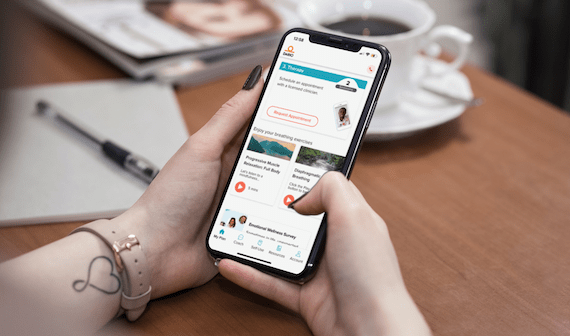Tackling health disparities: Data shows digital health can help close gaps
Racial disparities in health care remain prevalent despite efforts to use technology to broaden access and quality of care. This means that certain groups of people face more obstacles to staying healthy or getting the care they need compared to others. In the US, for example, ethnic and racial minorities see higher rates of premature death and chronic disease.
Consider these sobering stats from recent studies:
- Black adults are 60% more likely to be diagnosed with diabetes than white adults [1]
- Black women are nearly 50% more likely to have high blood pressure than white women [2]
- Nearly 48% of Black adults are clinically obese compared to 32% percent of white adults [3]
The potential impact of digital health
Digital health platforms have the potential to reduce disparities by providing access to educational content, putting people in contact with coaches, and facilitating valuable self-management activities in between doctors’ visits. Offering digital health management tools to underserved populations with diabetes and other chronic conditions will go a long way towards improving their health, cutting healthcare costs, and minimizing the impact of lost work and wages.
Dario’s impact as demonstrated by data
Part of our mission at Dario is to expand access to digital health solutions for chronic conditions such as diabetes, hypertension, and weight management, which are more prevalent in minorities communities. We strive to close gaps by creating more adaptable and personalized solutions that can adjust to cultural and ethnic needs.
Our tools and resources are culturally informed to help individuals manage and improve physical health—between provider visits and in situations where access to providers is limited. Through ongoing research, trend monitoring, and user surveys, Dario continuously updates its digital health solutions to be as inclusive and relevant as possible to each individual user.
Recent research from Dario offers good news for employers and health plans developing health equity initiatives: Digital health can help level the playing field.
Ethnic equity
A retrospective study of 1,000 high-risk Dario users (48% male and 52% female) with type 2 diabetes showed no appreciable differences in outcomes by race or ethnicity. All ethnic groups surveyed reduced their average blood glucose by about 15% over the course of a year.

Geographic equity
Rural residents often have less access to care and worse health behaviors and outcomes than their nonrural peers. But another retrospective data study—which evaluated 1,333 active Dario users with type 2 diabetes in rural and nonrural environments—showed that both groups were able to significantly reduce average blood glucose levels over the course of a year. The nonrural group achieved a 17% reduction, while the rural group achieved a 13% reduction.

We are proud of these results and are committed to working to address health disparities. Let’s leverage the power of digital health to help everyone live their best life.

Learn more about Dario digital health solutions
Dario is proud to have an 80% retention rate after year one.
Our user-centric approach translates into members who use the program long-term. Contact us to learn more.
Request a Demo